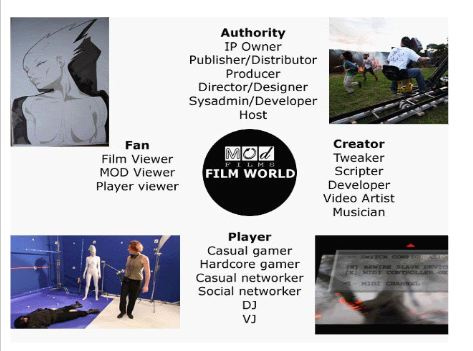
About MOD Films
MOD Films produces content and technology in tandem aimed at new visual story-telling platforms. Founded by Michela Ledwidge in 2004, NESTA (the National Endowment for Science, Technology and the Arts) Inventions and Innovations award, funded the first round of prototypes. Since then, the company has attracted the attention and interest of media and technology industries for its pioneering work into new formats and virtual studio processes.

Why MOD Films?
Film is going to change dramatically in the next ten years. Not just in production values, as in the last ten years, but in production methods and how the films are packaged for audiences. Digital asset management is going to be the key to commercial and creative re-use, increasingly the likelihood of any film investment returns.
The key will be the exploitation of new means of leveraging film assets instead of throwing them away after a film is released. In this way films can become their own commercial production libraries. Re-use has never been a focus of film-making but it is fundamental to exploiting creative potential in any industry. In order for film and interactive productions to work better in tandem, there has to be a shift in perception. The film print is now only one part of the master.
MOD Films makes re-mixable films and tools for film re-use. Sustainable Story Systems.
MOD Films helps film companies manage assets and manage their relationships with interactive companies. The key to "re-mixable" is reliable process management; the efficient documenting and packaging of the bits and pieces of a film production so as to help support future revenue streams, be they DV releases, game console releases, online communities and their products or beyond.
MOD Films helps film-makers rapidly visualize new possibilities for the cinema and game consoles.
MOD Films helps studios by exploring a film's interactive potential early on, while there is still time to come at the story from a different angle.
MOD Films helps film producers and distributors grow online businesses by preparing the groundwork for digital rights management - the categorization and packaging of networked assets.
The films of tomorrow may be successful for one of an increasingly broad set of reasons. Story world creators who allow the networked audience to re-absorb the artistry, power and entertainment value of films may well be the first to harness the next phase of the Internet - the Semantic Web - a Web flush with new context and new opportunities for cross-pollination. For film-makers, game makers and their combined audiences, this could be a new age of story-telling. MOD Films has a part to play.